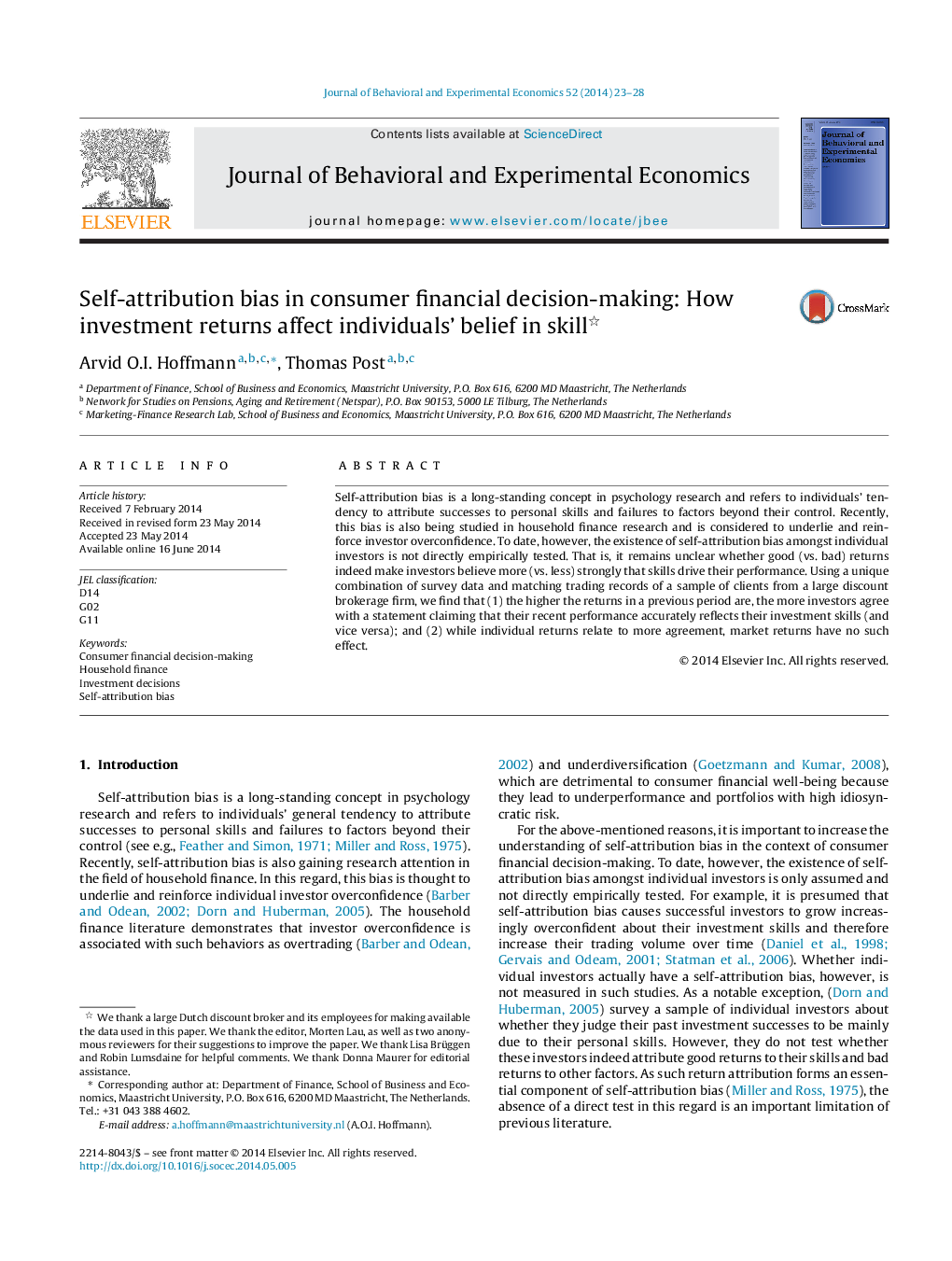| Article ID | Journal | Published Year | Pages | File Type |
|---|---|---|---|---|
| 881900 | Journal of Behavioral and Experimental Economics | 2014 | 6 Pages |
•We empirically test existence of self-attribution bias amongst individual investors.•We document positive relationship between returns and belief in investment skills.•We find this effect only for individual returns, market returns have no such impact.
Self-attribution bias is a long-standing concept in psychology research and refers to individuals’ tendency to attribute successes to personal skills and failures to factors beyond their control. Recently, this bias is also being studied in household finance research and is considered to underlie and reinforce investor overconfidence. To date, however, the existence of self-attribution bias amongst individual investors is not directly empirically tested. That is, it remains unclear whether good (vs. bad) returns indeed make investors believe more (vs. less) strongly that skills drive their performance. Using a unique combination of survey data and matching trading records of a sample of clients from a large discount brokerage firm, we find that (1) the higher the returns in a previous period are, the more investors agree with a statement claiming that their recent performance accurately reflects their investment skills (and vice versa); and (2) while individual returns relate to more agreement, market returns have no such effect.
